第100章 THE SECOND(3)
In the end I made some very rapid decisions, but for nearly two years I was hesitating.Hesitations were inevitable in such a matter.I was not dealing with any simple question of principle, but with elusive and fluctuating estimates of the trend of diverse forces and of the nature of my own powers.All through that period I was asking over and over again: how far are these Confederates mere dreamers? How far--and this was more vital--are they rendering lip-service to social organisations? Is it true they desire war because it confirms the ascendency of their class? How far can Conservatism be induced to plan and construct before it resists the thrust towards change.Is it really in bulk anything more than a mass of prejudice and conceit, cynical indulgence, and a hard suspicion of and hostility to the expropriated classes in the community?
That is a research which yields no statistics, an enquiry like asking what is the ruling colour of a chameleon.The shadowy answer varied with my health, varied with my mood and the conduct of the people I was watching.How fine can people be? How generous?--not incidentally, but all round? How far can you educate sons beyond the outlook of their fathers, and how far lift a rich, proud, self-indulgent class above the protests of its business agents and solicitors and its own habits and vanity? Is chivalry in a class possible?--was it ever, indeed, or will it ever indeed be possible?
Is the progress that seems attainable in certain directions worth the retrogression that may be its price?
4
It was to the Pentagram Circle that I first broached the new conceptions that were developing in my mind.I count the evening of my paper the beginning of the movement that created the BLUE WEEKLYand our wing of the present New Tory party.I do that without any excessive egotism, because my essay was no solitary man's production; it was my reaction to forces that had come to me very large through my fellow-members; its quick reception by them showed that I was, so to speak, merely the first of the chestnuts to pop.
The atmospheric quality of the evening stands out very vividly in my memory.The night, I remember, was warmly foggy when after midnight we went to finish our talk at my house.
We had recently changed the rules of the club to admit visitors, and so it happened that I had brought Britten, and Crupp introduced Arnold Shoesmith, my former schoolfellow at City Merchants, and now the wealthy successor of his father and elder brother.I remember his heavy, inexpressively handsome face lighting to his rare smile at the sight of me, and how little I dreamt of the tragic entanglement that was destined to involve us both.Gane was present, and Esmeer, a newly-added member, but I think Bailey was absent.Either he was absent, or he said something so entirely characteristic and undistinguished that it has left no impression on my mind.
I had broken a little from the traditions of the club even in my title, which was deliberately a challenge to the liberal idea: it was, "The World Exists for Exceptional People." It is not the title I should choose now--for since that time I have got my phrase of "mental hinterlander" into journalistic use.I should say now, "The World Exists for Mental Hinterland."The notes I made of that opening have long since vanished with a thousand other papers, but some odd chance has preserved and brought with me to Italy the menu for the evening; its back black with the scrawled notes I made of the discussion for my reply.I found it the other day among some letters from Margaret and a copy of the 1909 Report of the Poor Law Commission, also rich with pencilled marginalia.
My opening was a criticism of the democratic idea and method, upon lines such as I have already sufficiently indicated in the preceding sections.I remember how old Dayton fretted in his chair, and tushed and pished at that, even as I gave it, and afterwards we were treated to one of his platitudinous harangues, he sitting back in his chair with that small obstinate eye of his fixed on the ceiling, and a sort of cadaverous glow upon his face, repeating--quite regardless of all my reasoning and all that had been said by others in the debate--the sacred empty phrases that were his soul's refuge from reality."You may think it very clever," he said with a nod of his head to mark his sense of his point, "not to Trust in the People.I do." And so on.Nothing in his life or work had ever shown that he did trust in the people, but that was beside the mark.
He was the party Liberal, and these were the party incantations.